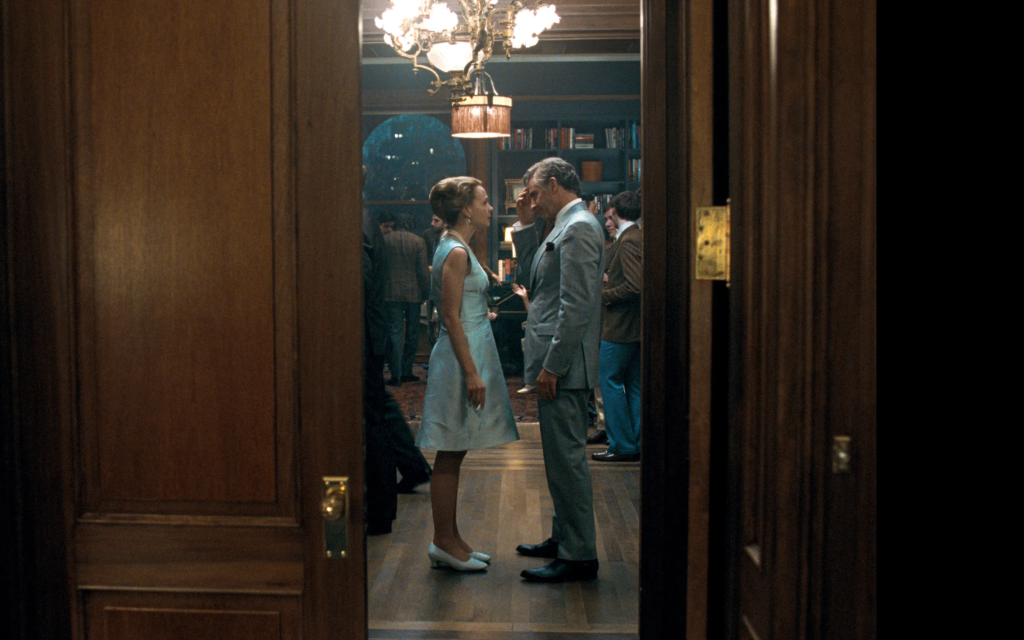Behind The Maestro: Leonard Bernstein’s Complicated Love Journey Revealed”
“Maestro,” featuring Bradley Cooper as the renowned composer Leonard Bernstein, delves into the multifaceted love life of the musical genius. The film, directed and co-written by Cooper, takes a close look at Bernstein’s profound connections with both music and his wife, Felicia Montealegre, played by Carey Mulligan. This article explores how the movie authentically portrays their relationship amid the challenges posed by Bernstein’s affairs and his internal struggle with his sexuality.
A Glimpse Into Bernstein’s Complex Marriage

The film accurately reflects Bernstein’s 26-year marriage to Felicia Montealegre, during which he maintained relationships with other men. Montealegre, aware of his sexuality, chose to marry Bernstein, standing by him until her death in 1978. The movie highlights a crucial letter written by Montealegre in the early years of their marriage, expressing her understanding of his homosexuality and granting him permission to pursue relationships outside the marriage without guilt or confession.
Navigating Challenges: Sacrifices and Compromises
Montealegre’s decision to stay with Bernstein came with personal sacrifices, including giving up her career as a stage and television star to raise their three children. The film sheds light on the societal pressures of the 1940s and 1950s, with mentors advising Bernstein to marry Montealegre to dispel rumors about his sexuality. The movie also explores the challenges faced by Montealegre in accepting the arrangement, emphasizing her internal struggles and the toll it took on her personal life.
Public Image and Career Implications
Bernstein’s decision to marry Montealegre also had implications for his public image and career. The film portrays the societal homophobia of the time and how Bernstein’s mentor, Serge Koussevitzky, urged him to marry to avoid potential backlash. Despite the marriage being a strategic move for Bernstein’s career, the movie maintains that genuine love existed between the couple.
Shifts in Identity: Bernstein’s Openness About His Sexuality
As societal attitudes evolved, the film captures Bernstein’s desire to live openly as a gay man, especially after the Stonewall Riots in 1969. The portrayal of Bernstein’s brief separation from Montealegre in 1976-1977 and his relationship with musician Tom Cothran highlights this shift. The film delicately depicts the complexities of their marriage as Montealegre copes with cancer, culminating in her passing in 1978.
Love Beyond Labels: Authenticity in Bernstein’s Marriage
Despite societal expectations and personal challenges, scholars affirm the authenticity of Bernstein’s feelings for Felicia Montealegre. The film portrays their relationship as a sincere connection between a male homosexual and a woman during a time when societal norms pressured individuals to conform to traditional roles.
Legacy of Friendship: Insights from Bernstein’s Daughter
Bernstein’s eldest daughter, Jamie, emphasizes the strength of her parents’ friendship in a 1997 PBS interview. Beyond passion, their ability to share common interests, make each other laugh, and support one another in various pursuits played a pivotal role in sustaining their marriage.
Maestro’s Nuanced Depiction of Bernstein’s Love and Identity
“Maestro” provides a nuanced and authentic portrayal of Leonard Bernstein’s complex love life, navigating societal expectations, personal struggles, and shifting attitudes toward sexuality. The film underscores the enduring friendship between Bernstein and Montealegre, shedding light on a chapter of their lives that transcended societal labels and norms.
Get The Latest Updates From The World Of Music, Movies, TV, Culture, And Fashion In Musical States Magazine. Please Follow Us On Facebook, Instagram, Twitter, And LinkedIn To Receive Instantaneous Updates



